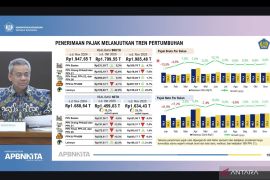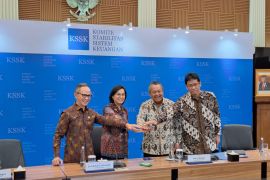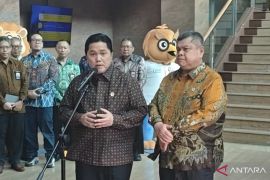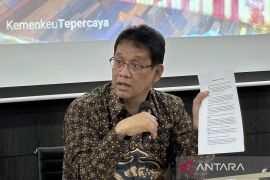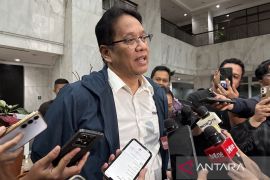Of course, not all basic necessities (will be subject to VAT). For instance, basic necessities sold at traditional markets will not be subject to VAT. This is not the case with premium basic necessities.Jakarta (ANTARA) - The government will solely impose value-added tax (VAT) on premium basic necessities through amendment to Law No. 6 of 1983 on general provisions and taxation procedures (RUU KUP), according to the Finance Ministry.
"Of course, not all basic necessities (will be subject to VAT). For instance, basic necessities sold at traditional markets will not be subject to VAT. This is not the case with premium basic necessities," Director of Public Counselling, Services, and Relations of the Taxation Directorate General at the Finance Ministry Neilmaldrin Noor remarked during an online media briefing in Jakarta on Monday.
In a bid to dispel circulating doubts, Noor explained that the ministry has not set the VAT rate for premium basic necessities since the bill on amendment to Law No. 6 of 1983 had yet to be discussed with the House of Representatives (DPR).
"When it comes to the tariff, I can say it in advance since we still have to hold discussions (with the DPR)," he remarked.
Noor expounded that the VAT was imposed on premium basic necessities on grounds of economic distortion owing to tax incidence that lowers the competitiveness of domestic products against imported goods.
Consequently, tax collection is not efficient and the granting of facilities requires tax-free certificate (SKB) and the certificate of uncollected tax (SKTD) that will lead to administrative costs, he stated.
In comparison with other nations, the VAT rate in Indonesia is relatively low, averaging 19 percent in OECD nations and 17 percent in BRICS countries.
Furthermore, the government believes injustice was occurring since people of all income brackets are exempted from VAT while consuming the same tax objects, he noted.
Noor opined that people from the upper income bracket should contribute more to the state tax receipts than those from the lower- and middle-income segments.
"This is in line with our nationalism to make our mutual help better. Many hands make the work light," he affirmed.
Several countries have adopted the VAT multi-tariff policy under which people capable of paying for taxable goods or services are subject to higher tariffs, he remarked.
However, it is not the case with Indonesia in which neither people from the upper income segment nor those from the low and middle income brackets are subject to VAT for beef consumption, he pointed out.
DPR Vice Chairman Abdul Muhaimin Iskandar had earlier sought a governmental review on a plan to impose VAT on basic necessities through amendment to Law No. 6 of 1983.
"I think it (the plan) needs to be reviewed, the more so because it is launched during the pandemic and difficult economy," Iskandar noted in a written statement released on Thursday (June 10).
The plan, if realized, will potentially be burdensome to the public and counterproductive to the government's efforts to deal with disparities through tax reforms, he remarked.
Meanwhile, People's Consultative Assembly (MPR) Vice Chairman Arsul Sani questioned the government's plan to impose VAT on basic necessities, stressing it will potentially clash with the Pancasila state ideology’s fifth tenet on social justice.
"The constitutionality of the policy is open to questions if it is really to be incorporated into law on general taxation provisions," he noted here on Thursday.
The policy is open to a lawsuit on grounds that it runs counter to article 33, paragraph 4 of the 1945 Constitution, especially the principles of togetherness, justice efficiency, and balance of national economic unity, he remarked.
Finance Minister Sri Mulyani Indrawati stressed earlier that the government had continued to focus on recovering the national economy, so she expressed regret over the public uproar related to the plan to impose VAT on basic necessities.
"The government really uses the state budget instrument. This is because our objective is to recover the economy from the demand side and supply side," Indrawati stated at a working meeting with the DPR Commission XI in Jakarta on Thursday.
Indrawati noted that the draft of the law on general provisions and taxation procedures had just arrived at the DPR, so the uproar is highly regrettable.
Related news: Government should review VAT imposition plan on basic needs: DPR
Related news: MPR deputy chief questions VAT imposition plan on food stuffs
EDITED BY INE
Translator: Astrid Faidlatul H/Suharto
Editor: Fardah Assegaf
Copyright © ANTARA 2021

